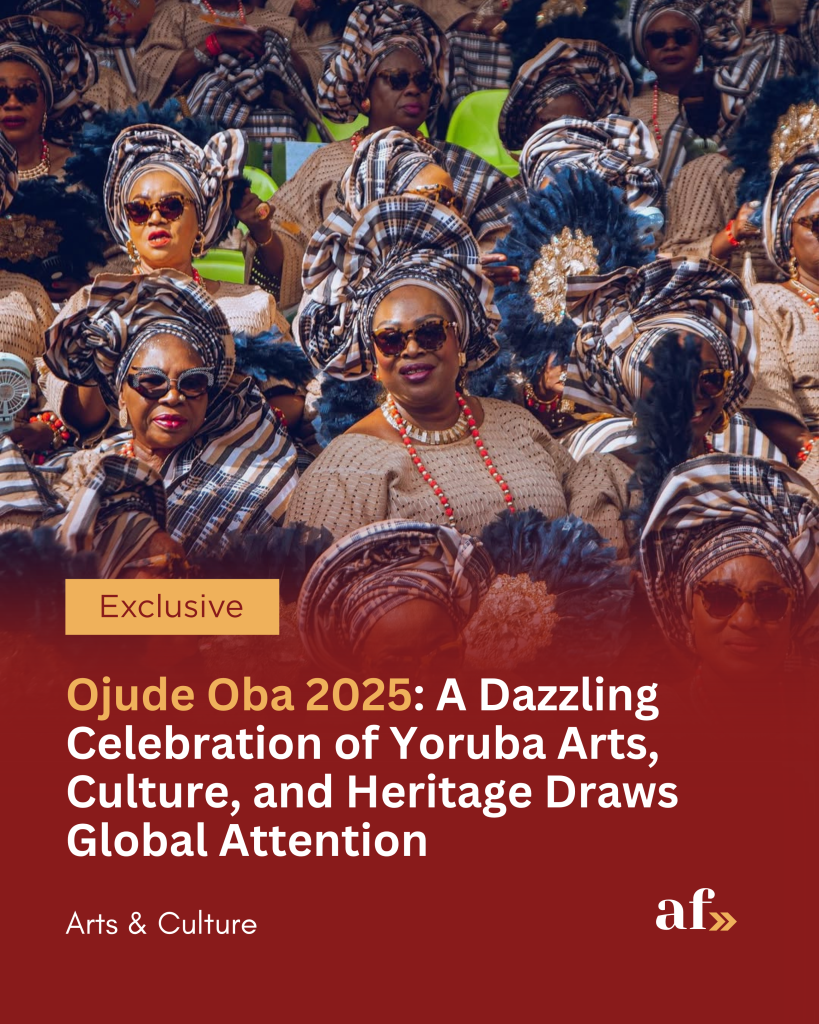
The 2025 edition of the Ojude Oba Festival has been hailed as a triumphant showcase of Yoruba arts, fashion, and cultural heritage, reinforcing the festival’s reputation as one of Africa’s most vibrant cultural spectacles.
Held in Ijebu-Ode, Ogun State the festival transformed the ancient town into a living gallery of tradition, creativity, and regal elegance. Thousands of Ijebu indigenes and international guests gathered to witness the deeply symbolic homage to the Awujale of Ijebuland, Oba Sikiru Adetona.
This year’s celebration placed renewed emphasis on indigenous craftsmanship, including elaborate Aso-Oke designs, intricately embroidered Agbadas, handcrafted coral bead jewelry, and the majestic display of equestrian artistry by the historic Balogun families.
“The Ojude Oba Festival has become more than a tribute to our revered monarch—it is now a global platform for Yoruba creativity, storytelling, and cultural diplomacy,” said Governor Dapo Abiodun during his address at the festival pavilion.
The heart of the festival—the Regberegbe parades—saw various age-grade groups arrive in coordinated traditional attire, showcasing not only their unity but the evolution of Yoruba fashion aesthetics. Performances of talking drums, bata rhythms, chants, and folk dances added layers of music and meaning to the cultural experience.
Artisans, fashion designers, photographers, and curators took center stage, with pop-up exhibitions and installations spotlighting Ijebu history and oral traditions.
Governor Abiodun expressed the state’s commitment to transforming the festival into a global cultural tourism hub, stating:
“Ojude Oba is a living museum of our identity. From our textiles to our tales, it celebrates the enduring spirit of Ijebuland and the creative brilliance of the Yoruba people.”
He also hinted at efforts to secure UNESCO recognition for the festival as an intangible cultural heritage, a move that would place Ojude Oba alongside global cultural treasures.
As the final horse galloped across the palace square and the drums faded into the night, one thing was clear—Ojude Oba 2025 had once again bridged the past and the future, through the power of art, tradition, and collective memory.
